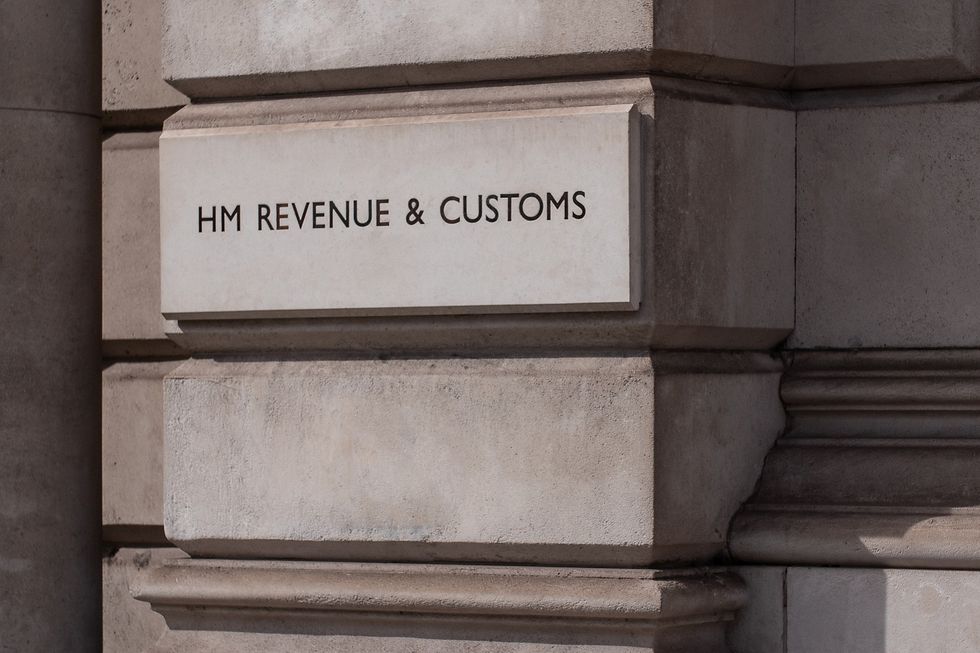Around 49,000 estates per year which include pensions will face an inheritance tax bill, Government figures show
GETTY
Around 49,000 estates per year which include pensions will face an inheritance tax bill, Government figures show
Don't Miss
Most Read
Trending on GB News
Grieving families in the UK face a stark warning as they grapple with inheritance tax (IHT) bills amidst significant delays in obtaining probate.
Many are now forced to pay substantial sums out of pocket before accessing death benefits or funds from their loved ones' estates.
This financial strain comes as the Government proposes sweeping changes to IHT rules for pensions, set to take effect from April 2027.
From April 6, 2027, most unused pension funds and death benefits will be included within the value of a person’s estate for Inheritance Tax purposes
Pension scheme administrators will now become responsible for reporting and paying any IHT due on pensions to HMRC.
These changes are raising serious concerns among experts about the potential "bureaucratic nightmare" awaiting bereaved families.

Families must pay IHT bills before securing probate
GETTYSteve Webb, a partner at pension consultants LCP, has highlighted the potential complications arising from these changes as bereaved families face "huge challenges" as their lumped with the burden.
He said: "‘Bereaved relatives already face huge challenges in winding up the financial affairs of a loved one, including delays in obtaining probate and the need to pay IHT bills before finances may become available.
"Including pensions within the scope of IHT will add greatly to the burden which families face."
Currently, families face two major challenges when dealing with IHT. Firstly, they must pay IHT bills before securing probate. Secondly, obtaining probate itself can take many months, prolonging the process of finalising a loved one's financial affairs.
The proposed changes threaten to exacerbate these issues. Webb cautions that the new process could lead to delays, including in the release of death-in-service lump sums. These lump sums themselves could be substantially reduced if they are subject to tax of up to 40 per cent.
The process for including pensions in IHT is quite complex as bereaved individuals must notify relevant pension schemes of the death and request information on fund values and death benefit entitlements.
Pension schemes must then assess and provide details on existing benefits, nominated beneficiaries, amounts due, and the deceased's use of their Lifetime Allowance.
The bereaved person must gather this information from all pension schemes, along with other estate assets, and use an HMRC online calculator to determine if IHT is due.
If applicable, they must notify each pension scheme of its share of the IHT bill. Schemes then report to HMRC, who issue an IHT demand within six months of the death.
Finally, schemes pay their share of IHT before making payments to beneficiaries, while the bereaved person settles any remaining IHT on other assets.
Webb warned: "People will need to know which pension schemes to contact, will have to rely on the efficient administration of pensions – with the whole process on hold until the slowest scheme has replied – and then potentially wait months more before death benefits and pension balances can be released by the scheme.
According to Government estimates, around 49,000 estates per year including pensions will face an IHT bill under the new rules.
LATEST DEVELOPMENTS:
This comprises 10,500 estates that would not have faced IHT previously, and 38,500 already in the IHT net but now facing an additional bill.
Many more bereaved families may need to obtain pension information simply to check if IHT is due. This suggests tens of thousands of bereaved people each year may have to navigate this complex process.
Webb calls for a more streamlined process, saying: "The whole thing could turn into a bureaucratic nightmare for grieving families. If this proposal is to go ahead, the Government will need to come up with a much more streamlined process than is currently proposed’.







